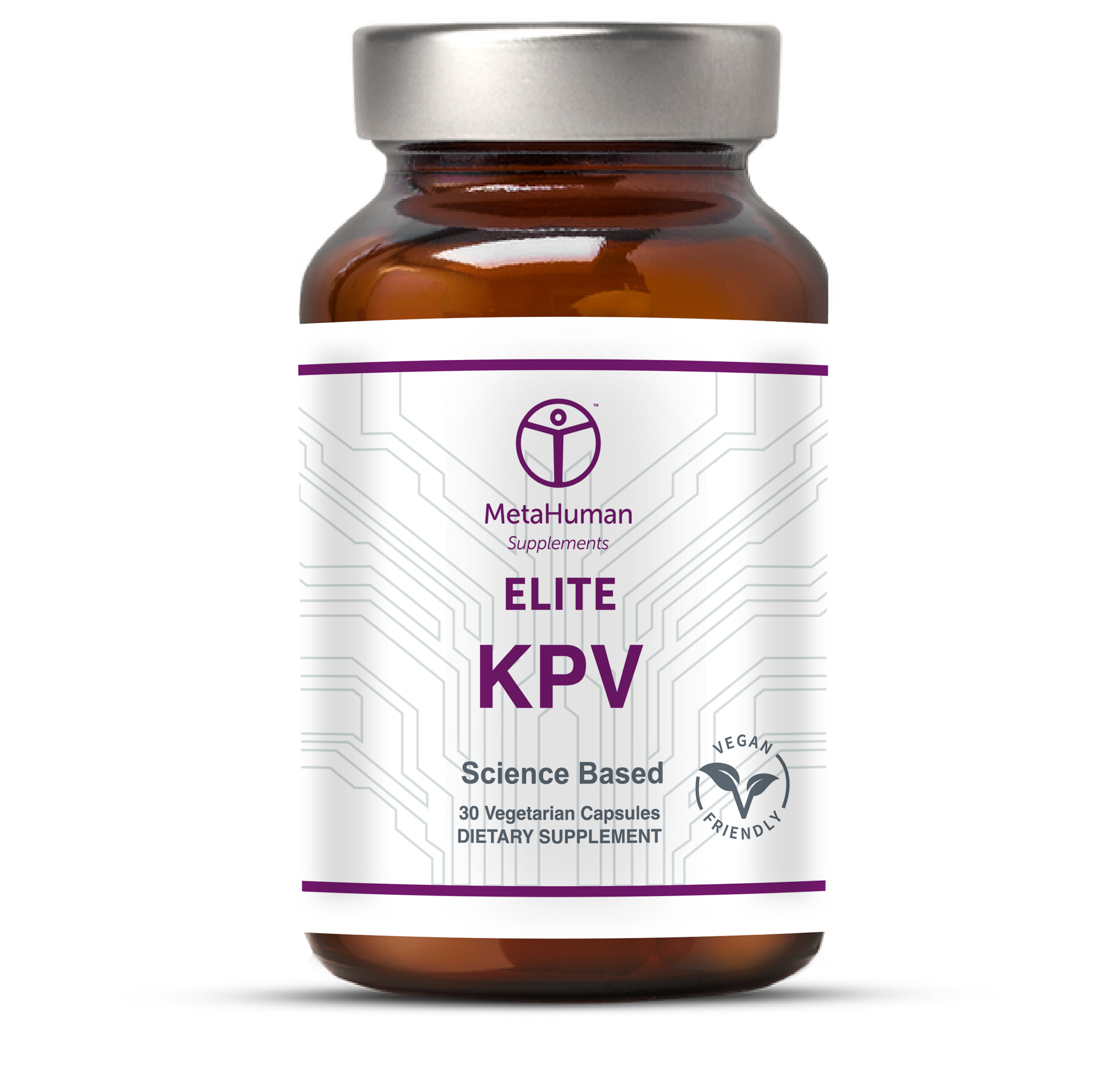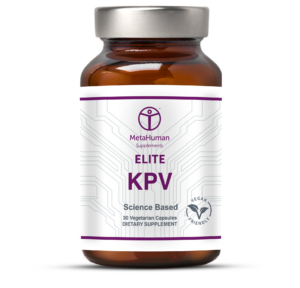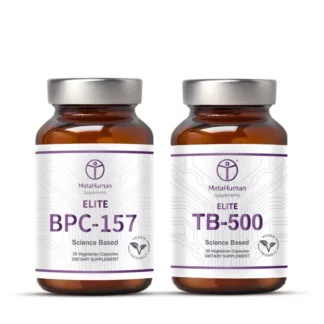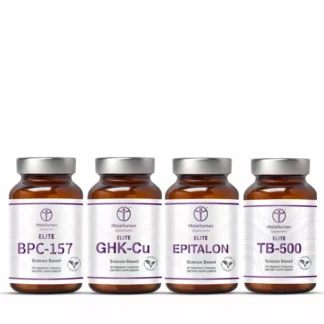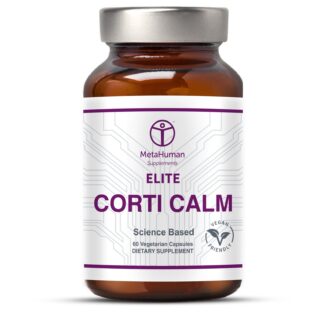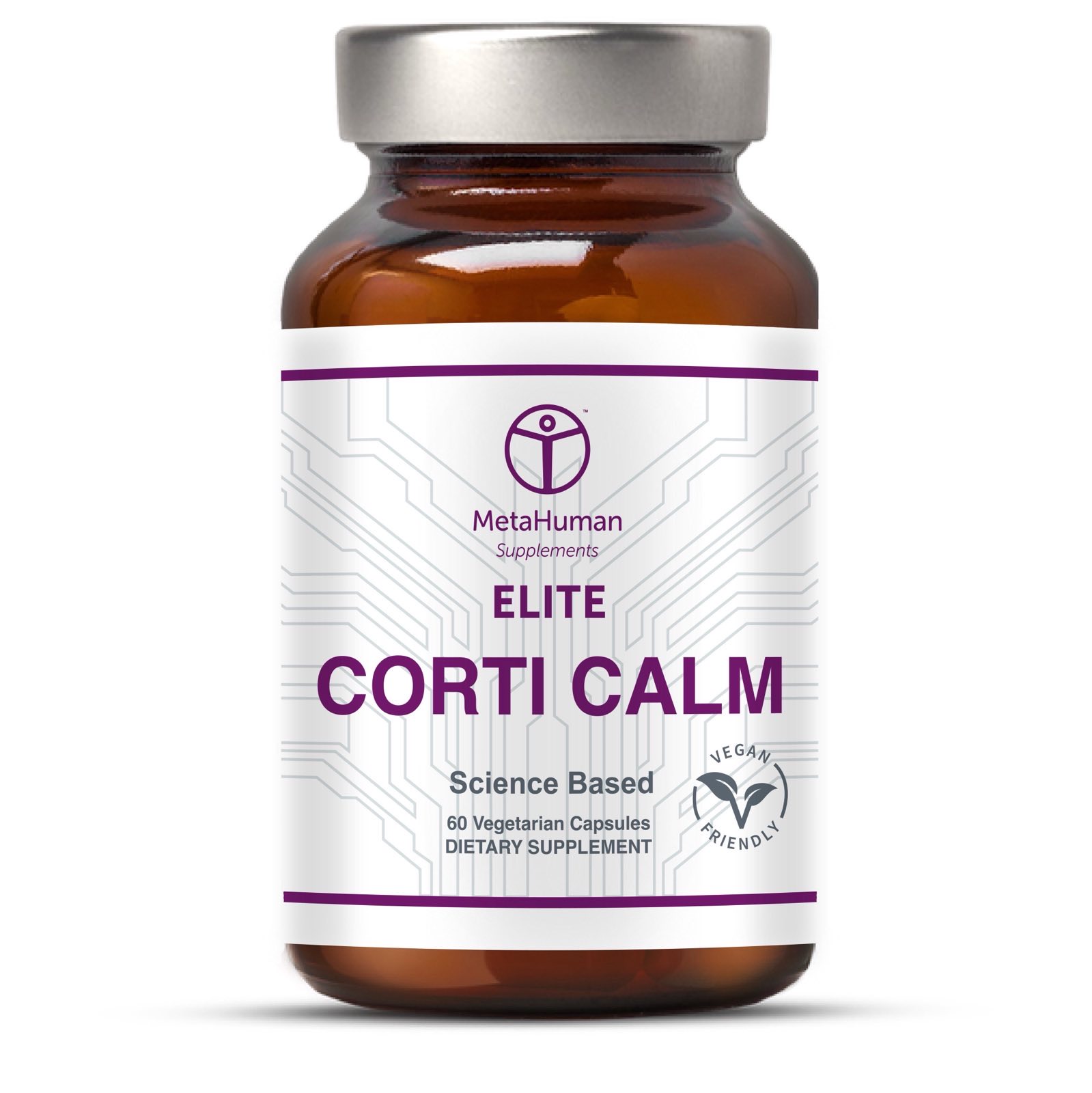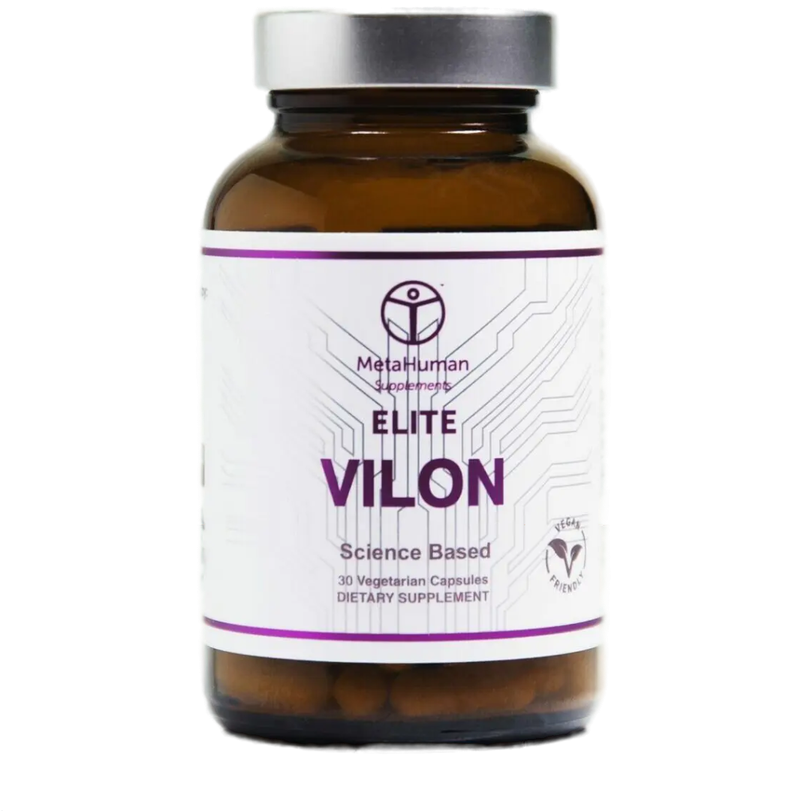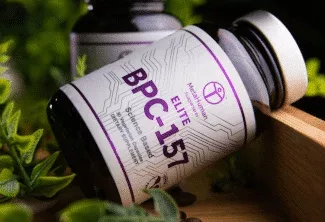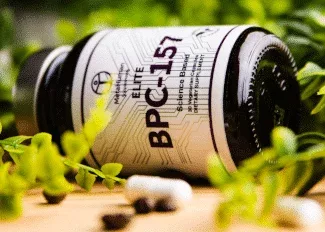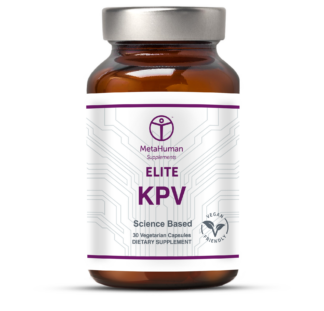Elite KPV
239,00 zł
KPV is a tripeptide composed of three amino acids (lysine, proline, and valine), which occurs naturally in the human body. It is a fragment of the alpha-melanocyte-stimulating hormone (α-MSH), playing a crucial role in regulating inflammatory processes and the immune system’s response.
Anti-inflammatory and Immunomodulatory Action
One of the primary mechanisms of KPV’s action is its ability to reduce inflammation. KPV works by inhibiting pro-inflammatory cytokines and transcription factors, such as NF-κB. Because of this, the peptide can be particularly useful in treating inflammatory diseases, including inflammatory bowel diseases (e.g., Crohn’s disease), arthritis, and skin conditions like psoriasis or atopic dermatitis.
Antimicrobial Properties
KPV also exhibits antimicrobial properties. Laboratory studies have shown that it can inhibit the growth of bacteria like Staphylococcus aureus and Pseudomonas aeruginosa, which are associated with skin infections and wounds. This makes KPV useful for treating bacterial infections and supporting wound healing.
Potential Therapeutic Applications
KPV has applications in various fields of medicine. Here are some potential therapeutic uses:
- Inflammatory Bowel Diseases: KPV has shown promising results in treating Crohn’s disease and ulcerative colitis. Its anti-inflammatory properties can alleviate symptoms, reduce intestinal damage, and improve patients’ quality of life.
- Wound Healing and Skin Infections: Its antimicrobial and skin-regenerative properties make KPV suitable for treating wounds, burns, bacterial infections, and other dermatological issues.
- Autoimmune Diseases: KPV may support the immune system by reducing autoimmune activity, making it a potential candidate for treating diseases like rheumatoid arthritis and lupus.
- Dermatological Therapies: The peptide is used in cosmetics, particularly in treating psoriasis, atopic dermatitis, and acne. It can soothe the skin, reduce redness, and alleviate inflammation.
Description
KPV is a tripeptide composed of three amino acids (lysine, proline, and valine), which occurs naturally in the human body. It is a fragment of the alpha-melanocyte-stimulating hormone (α-MSH), playing a crucial role in regulating inflammatory processes and the immune system’s response.
Anti-inflammatory and Immunomodulatory Action
One of the primary mechanisms of KPV’s action is its ability to reduce inflammation. KPV works by inhibiting pro-inflammatory cytokines and transcription factors, such as NF-κB. Because of this, the peptide can be particularly useful in treating inflammatory diseases, including inflammatory bowel diseases (e.g., Crohn’s disease), arthritis, and skin conditions like psoriasis or atopic dermatitis.
Antimicrobial Properties
KPV also exhibits antimicrobial properties. Laboratory studies have shown that it can inhibit the growth of bacteria like Staphylococcus aureus and Pseudomonas aeruginosa, which are associated with skin infections and wounds. This makes KPV useful for treating bacterial infections and supporting wound healing.
Potential Therapeutic Applications
KPV has applications in various fields of medicine. Here are some potential therapeutic uses:
- Inflammatory Bowel Diseases: KPV has shown promising results in treating Crohn’s disease and ulcerative colitis. Its anti-inflammatory properties can alleviate symptoms, reduce intestinal damage, and improve patients’ quality of life.
- Wound Healing and Skin Infections: Its antimicrobial and skin-regenerative properties make KPV suitable for treating wounds, burns, bacterial infections, and other dermatological issues.
- Autoimmune Diseases: KPV may support the immune system by reducing autoimmune activity, making it a potential candidate for treating diseases like rheumatoid arthritis and lupus.
- Dermatological Therapies: The peptide is used in cosmetics, particularly in treating psoriasis, atopic dermatitis, and acne. It can soothe the skin, reduce redness, and alleviate inflammation.
KPV is a tripeptide composed of three amino acids (lysine, proline, and valine), which occurs naturally in the human body. It is a fragment of the alpha-melanocyte-stimulating hormone (α-MSH), playing a crucial role in regulating inflammatory processes and the immune system’s response.
Anti-inflammatory and Immunomodulatory Action
One of the primary mechanisms of KPV’s action is its ability to reduce inflammation. KPV works by inhibiting pro-inflammatory cytokines and transcription factors, such as NF-κB. Because of this, the peptide can be particularly useful in treating inflammatory diseases, including inflammatory bowel diseases (e.g., Crohn’s disease), arthritis, and skin conditions like psoriasis or atopic dermatitis.
Antimicrobial Properties
KPV also exhibits antimicrobial properties. Laboratory studies have shown that it can inhibit the growth of bacteria like Staphylococcus aureus and Pseudomonas aeruginosa, which are associated with skin infections and wounds. This makes KPV useful for treating bacterial infections and supporting wound healing.
Potential Therapeutic Applications
KPV has applications in various fields of medicine. Here are some potential therapeutic uses:
- Inflammatory Bowel Diseases: KPV has shown promising results in treating Crohn’s disease and ulcerative colitis. Its anti-inflammatory properties can alleviate symptoms, reduce intestinal damage, and improve patients’ quality of life.
- Wound Healing and Skin Infections: Its antimicrobial and skin-regenerative properties make KPV suitable for treating wounds, burns, bacterial infections, and other dermatological issues.
- Autoimmune Diseases: KPV may support the immune system by reducing autoimmune activity, making it a potential candidate for treating diseases like rheumatoid arthritis and lupus.
- Dermatological Therapies: The peptide is used in cosmetics, particularly in treating psoriasis, atopic dermatitis, and acne. It can soothe the skin, reduce redness, and alleviate inflammation.
KPV is a tripeptide composed of three amino acids (lysine, proline, and valine), which occurs naturally in the human body. It is a fragment of the alpha-melanocyte-stimulating hormone (α-MSH), playing a crucial role in regulating inflammatory processes and the immune system’s response.
Anti-inflammatory and Immunomodulatory Action
One of the primary mechanisms of KPV’s action is its ability to reduce inflammation. KPV works by inhibiting pro-inflammatory cytokines and transcription factors, such as NF-κB. Because of this, the peptide can be particularly useful in treating inflammatory diseases, including inflammatory bowel diseases (e.g., Crohn’s disease), arthritis, and skin conditions like psoriasis or atopic dermatitis.
Antimicrobial Properties
KPV also exhibits antimicrobial properties. Laboratory studies have shown that it can inhibit the growth of bacteria like Staphylococcus aureus and Pseudomonas aeruginosa, which are associated with skin infections and wounds. This makes KPV useful for treating bacterial infections and supporting wound healing.
Potential Therapeutic Applications
KPV has applications in various fields of medicine. Here are some potential therapeutic uses:
- Inflammatory Bowel Diseases: KPV has shown promising results in treating Crohn’s disease and ulcerative colitis. Its anti-inflammatory properties can alleviate symptoms, reduce intestinal damage, and improve patients’ quality of life.
- Wound Healing and Skin Infections: Its antimicrobial and skin-regenerative properties make KPV suitable for treating wounds, burns, bacterial infections, and other dermatological issues.
- Autoimmune Diseases: KPV may support the immune system by reducing autoimmune activity, making it a potential candidate for treating diseases like rheumatoid arthritis and lupus.
- Dermatological Therapies: The peptide is used in cosmetics, particularly in treating psoriasis, atopic dermatitis, and acne. It can soothe the skin, reduce redness, and alleviate inflammation.

